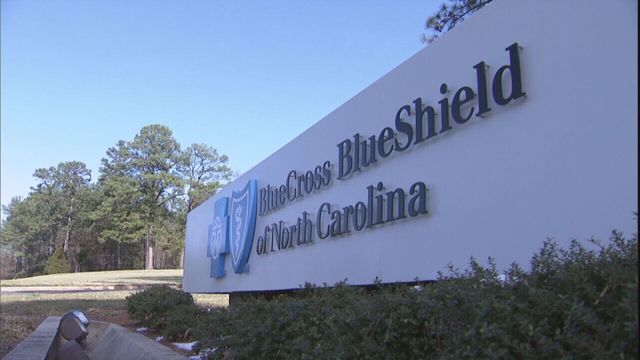Blue Cross to provide customers with up to $500 each for expenses during pandemic
Blue Cross Blue Shield of North Carolina said Friday that it will issue $200 million in debit cards to help customers pay for expenses during the ongoing coronavirus pandemic.
Posted — Updated"We recognize the unexpected hardship and uncertainty many of our members face because of COVID-19," President and Chief Executive Dr. Tunde Sotunde said in a statement. "At Blue Cross NC, we are committed to the well-being of our members, and we want to help them prioritize and pay for their health and wellness during this time."
In addition to paying for health-related expenses, such as over-the-counter medications, first aid supplies, exercise equipment and vitamins, the cards also can be used to buy food, baby care items and other household goods, officials said. The cards cannot be used to pay for insurance premiums, prescription drugs, tobacco or alcohol, they said.
More than 600,000 customers will receive the debit cards in the mail between Oct.19 and Nov. 7. Each will have a pre-loaded balance of $100 to $500, depending on what plan the customer has.
Eligible subscribers are those enrolled in Blue Cross' individual under-65 and fully insured employer plans, including vision and dental plans. People covered by Medicare, the State Health Plan, the Federal Employee Program, Student Blue and self-insured group medical plans won't receive a card.
The $200 million comes from funds Blue Cross received from the federal government through litigation related to the Affordable Care Act's temporary risk corridor program, officials said. The program was set up to encourage insurers to participate in the ACA's open marketplace by limiting their losses during the first three years of the exchange.
Blue Cross is using other risk corridor funds to keep 2021 rates for many of its customers lower, officials said. The premiums on ACA plans offered to individuals in 2021 will be reduced by an average of 1 percent statewide, the third straight year that Blue Cross has lowered ACA rates, officials said, noting that the reductions since 2018 have totaled nearly $1 billion.
Related Topics
• Credits
Copyright 2024 by Capitol Broadcasting Company. All rights reserved. This material may not be published, broadcast, rewritten or redistributed.






